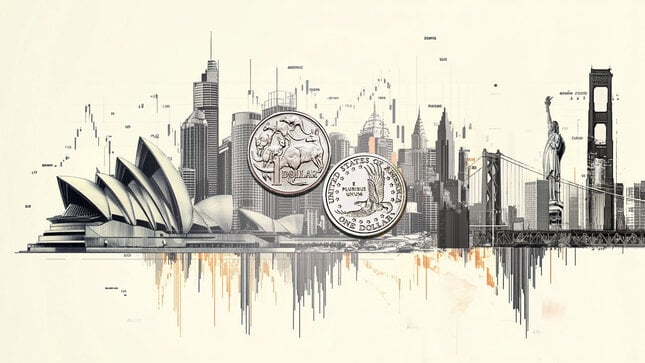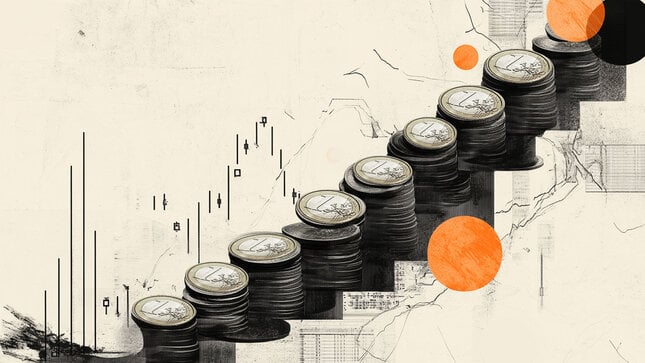- Bruce Bower manages a portfolio of emerging market equities at a hedge fund. He has a keen interest in markets, psychology and self-development, having trained as a hypnotherapist.
In the markets, luck and skill are difficult to untangle. A lot of price action is often noise, leading to semi-random returns over a lot of time frames. Our win rate with any investing strategy will never be 100 per cent, so we have to contend with the frustration of putting on positions and frequently losing money. Even the best traders will experience drawdowns. But that shouldn’t deter us from the pursuit of genuine skill and mastery. Hedge Fund trader Bruce Bower explains how to handle this; in addition, he will discuss the premier way to becoming consistently profitable – via focusing as much on understanding and improving the process instead of putting too much weight on single trades
Better Lucky than Good
How often have we heard this expression? In some ways, it’s quite funny: We assume that luck can’t be taught and skills can, so we’d prefer to have luck and learn the skill part later. We find it interesting in a trading context, because most would prefer to possess just true skill, or even better, skill and luck. In the markets, luck and skill are difficult to untangle. A lot of price action is often noise, leading to semi-random returns over a lot of time frames. Our win rate with any investing strategy will never be 100 per cent, so we have to contend with the frustration of putting on positions and frequently losing money. Emotionally, this can be a challenge, as even the best traders will experience drawdowns while at times, investing can seem like playing poker, where you are diligently adhering to a well-reasoned strategy only to experience the frustration of another player winning the pot by making a long shot bet. At times like that, even the best poker players have been heard to exclaim, “better lucky than good”. But that shouldn’t deter us from the pursuit of genuine skill and mastery.Know Your Stats
Despite all of the talk about luck, we have to ask: How do you even measure skill and luck? What would you measure in order to evaluate it properly? The answer to these questions is relatively straightforward in a card game like blackjack, where the odds are fixed in advance and known. With those, you can evaluate the situation and make a very good estimate of your odds versus the probabilities that you’re getting. If the pot is giving better betting odds than the implied probabilities, then it’s a good bet and you should do it. For instance, if it’s a ten per cent chance of winning but the betting odds are 20-1, then it’s a great bet.However, this is more about statistics than anything else. That bet will hit and win lots of money approximately one out of every ten times, more than compensating you for the risk taken. If you did it 10,000 times, you would come out as a huge overall winner. But on any particular bet, any old thing could happen. You could conceivably lose 15 times in a row and it wouldn’t be out of the ordinary.
With your trading and investing, how do you know what the probabilities are? You need to keep similar records and/ or undertake comprehensive historical research in order to know your own odds and probabilities. You have certain entry criteria for putting on positions – which setups work and how often? How much do you make versus how much do you lose? And what exit criteria work best for positions, and when? From this huge mass of data, you should be able to work out a few of the most important statistics, like what works, how much it makes when it works, and how frequently it works.
The point of gathering this data is to face what the data is telling you about your trading. Once you have all of the data accumulated, then you can start to draw conclusions about your aggregate results. While you may remember one particular trade that worked really well, once you see all of the data, you may conclude that that whole strategy doesn’t actually work well. Probabilities and statistics assert themselves over long periods of time and large quantities of data. Thus, you need large sample sizes and a host of data to figure out what works. The more data and time, then the more you can discount the role of luck and attribute results just to skill.
Editors’ Picks

AUD/USD remains close to three-year top amid the Fed-RBA divergence
AUD/USD attracts some dip-buyers near mid-0.7000s during the Asian session on Monday, stalling last week's modest pullback from a three-year peak. The US Dollar continues with its struggle to attract any meaningful buyers amid bets for further rate cuts by the Fed, bolstered by the softer US CPI report on Friday. In contrast, the Australian Dollar retains a bullish bias on the back of the RBA's hawkish stance, which further acts as a tailwind for the currency pair.

USD/JPY retakes 153.00 after Japan's weak Q4 GDP print
USD/JPY kicks off the new week on a positive note as Japan's weak Q4 GDP growth tempers bets for an immediate BoJ rate hike and undermines the Japanese Yen. Investors, however, seem convinced that the BoJ will stick to its policy normalization path amid hopes that PM Takaichi's policies will boost the Japanese economy. In contrast, cooling US consumer inflation reaffirmed bets for more Fed rate cuts in 2026, which acts as a headwind for the US Dollar and should cap the currency pair.

Gold remains below $5,050 despite Fed rate cut bets, uncertain geopolitical tensions
Gold edges lower after registering over 2% gains in the previous session, trading around $5,030 per troy ounce during the Asian hours on Monday. However, the non-interest-bearing Gold could further gain ground following softer January Consumer Price Index figures, which reinforced expectations that the Federal Reserve could cut rates later this year.

Week ahead: Data blitz, Fed Minutes and RBNZ decision in the spotlight
The US jobs report for January, which was delayed slightly, didn’t do the dovish Fed bets any favours, as expectations of a soft print did not materialize, confounding the raft of weak job indicators seen in the prior week.

Global inflation watch: Signs of cooling services inflation
Realized inflation landed close to expectations in January, as negative base effects weighed on the annual rates. Remaining sticky inflation is largely explained by services, while tariff-driven goods inflation remains limited even in the US.
RECOMMENDED LESSONS
Making money in forex is easy if you know how the bankers trade!
I’m often mystified in my educational forex articles why so many traders struggle to make consistent money out of forex trading. The answer has more to do with what they don’t know than what they do know. After working in investment banks for 20 years many of which were as a Chief trader its second knowledge how to extract cash out of the market.
5 Forex News Events You Need To Know
In the fast moving world of currency markets where huge moves can seemingly come from nowhere, it is extremely important for new traders to learn about the various economic indicators and forex news events and releases that shape the markets. Indeed, quickly getting a handle on which data to look out for, what it means, and how to trade it can see new traders quickly become far more profitable and sets up the road to long term success.
Top 10 Chart Patterns Every Trader Should Know
Chart patterns are one of the most effective trading tools for a trader. They are pure price-action, and form on the basis of underlying buying and selling pressure. Chart patterns have a proven track-record, and traders use them to identify continuation or reversal signals, to open positions and identify price targets.
7 Ways to Avoid Forex Scams
The forex industry is recently seeing more and more scams. Here are 7 ways to avoid losing your money in such scams: Forex scams are becoming frequent. Michael Greenberg reports on luxurious expenses, including a submarine bought from the money taken from forex traders. Here’s another report of a forex fraud. So, how can we avoid falling in such forex scams?
What Are the 10 Fatal Mistakes Traders Make
Trading is exciting. Trading is hard. Trading is extremely hard. Some say that it takes more than 10,000 hours to master. Others believe that trading is the way to quick riches. They might be both wrong. What is important to know that no matter how experienced you are, mistakes will be part of the trading process.
The challenge: Timing the market and trader psychology
Successful trading often comes down to timing – entering and exiting trades at the right moments. Yet timing the market is notoriously difficult, largely because human psychology can derail even the best plans. Two powerful emotions in particular – fear and greed – tend to drive trading decisions off course.


